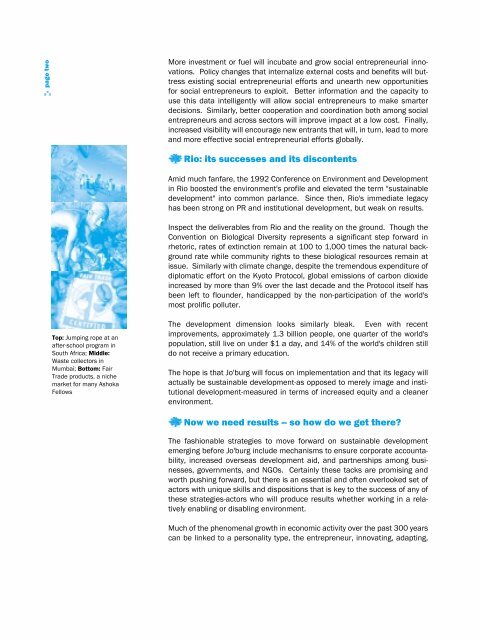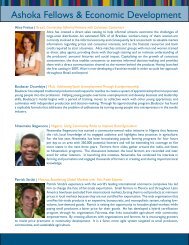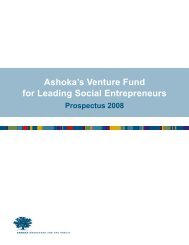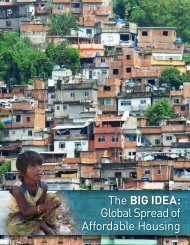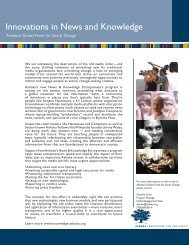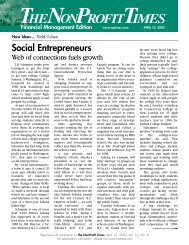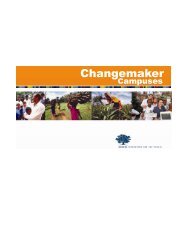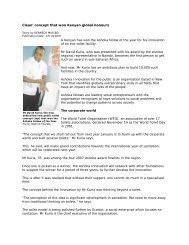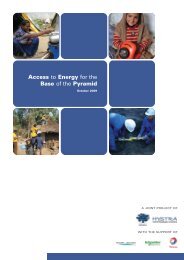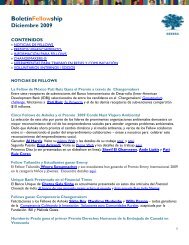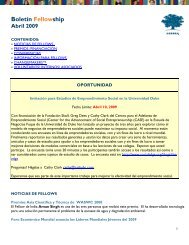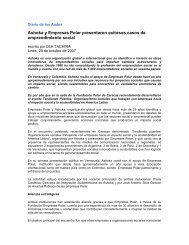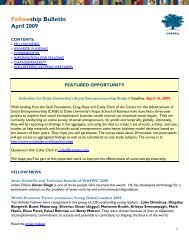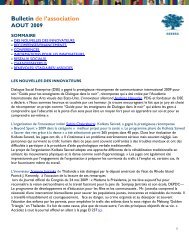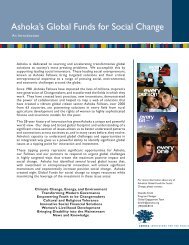Social Entrepreneurs: Doing Sustainable Development - Ashoka
Social Entrepreneurs: Doing Sustainable Development - Ashoka
Social Entrepreneurs: Doing Sustainable Development - Ashoka
Create successful ePaper yourself
Turn your PDF publications into a flip-book with our unique Google optimized e-Paper software.
page two<br />
Top: Jumping rope at an<br />
after-school program in<br />
South Africa; Middle:<br />
Waste collectors in<br />
Mumbai; Bottom: Fair<br />
Trade products, a niche<br />
market for many <strong>Ashoka</strong><br />
Fellows<br />
More investment or fuel will incubate and grow social entrepreneurial innovations.<br />
Policy changes that internalize external costs and benefits will buttress<br />
existing social entrepreneurial efforts and unearth new opportunities<br />
for social entrepreneurs to exploit. Better information and the capacity to<br />
use this data intelligently will allow social entrepreneurs to make smarter<br />
decisions. Similarly, better cooperation and coordination both among social<br />
entrepreneurs and across sectors will improve impact at a low cost. Finally,<br />
increased visibility will encourage new entrants that will, in turn, lead to more<br />
and more effective social entrepreneurial efforts globally.<br />
Rio: its successes and its discontents<br />
Amid much fanfare, the 1992 Conference on Environment and <strong>Development</strong><br />
in Rio boosted the environment's profile and elevated the term "sustainable<br />
development" into common parlance. Since then, Rio's immediate legacy<br />
has been strong on PR and institutional development, but weak on results.<br />
Inspect the deliverables from Rio and the reality on the ground. Though the<br />
Convention on Biological Diversity represents a significant step forward in<br />
rhetoric, rates of extinction remain at 100 to 1,000 times the natural background<br />
rate while community rights to these biological resources remain at<br />
issue. Similarly with climate change, despite the tremendous expenditure of<br />
diplomatic effort on the Kyoto Protocol, global emissions of carbon dioxide<br />
increased by more than 9% over the last decade and the Protocol itself has<br />
been left to flounder, handicapped by the non-participation of the world's<br />
most prolific polluter.<br />
The development dimension looks similarly bleak. Even with recent<br />
improvements, approximately 1.3 billion people, one quarter of the world's<br />
population, still live on under $1 a day, and 14% of the world's children still<br />
do not receive a primary education.<br />
The hope is that Jo'burg will focus on implementation and that its legacy will<br />
actually be sustainable development-as opposed to merely image and institutional<br />
development-measured in terms of increased equity and a cleaner<br />
environment.<br />
Now we need results -- so how do we get there?<br />
The fashionable strategies to move forward on sustainable development<br />
emerging before Jo'burg include mechanisms to ensure corporate accountability,<br />
increased overseas development aid, and partnerships among businesses,<br />
governments, and NGOs. Certainly these tacks are promising and<br />
worth pushing forward, but there is an essential and often overlooked set of<br />
actors with unique skills and dispositions that is key to the success of any of<br />
these strategies-actors who will produce results whether working in a relatively<br />
enabling or disabling environment.<br />
Much of the phenomenal growth in economic activity over the past 300 years<br />
can be linked to a personality type, the entrepreneur, innovating, adapting,


